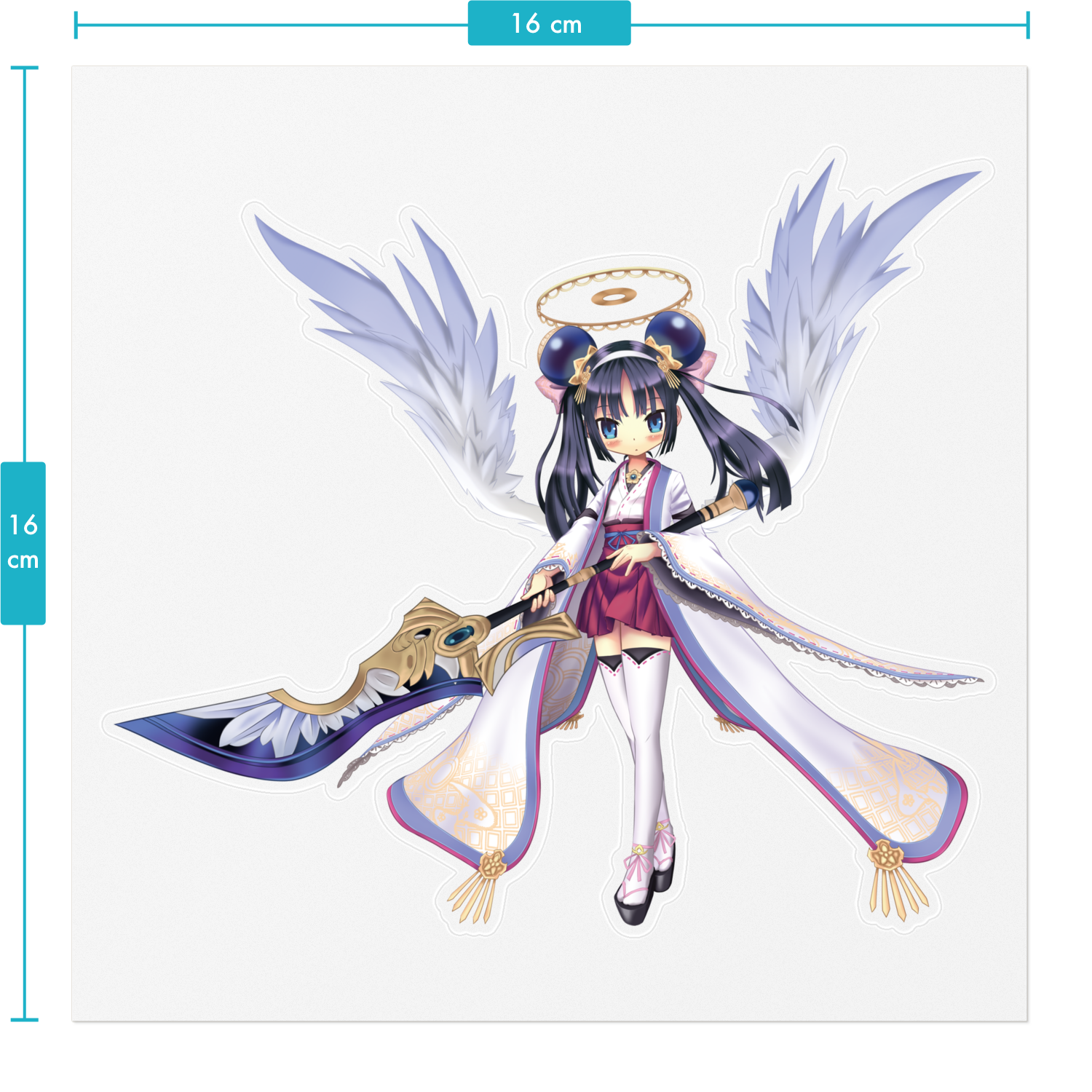What Does "Hyoi Bakatta" Mean? A Deep Dive Into The Japanese Slang
What Does "Hyoi Bakatta" Mean? A Deep Dive Into the Japanese Slang
You might have stumbled upon the phrase "hyoi bakatta" while exploring Japanese culture or browsing social media. This quirky expression has gained popularity recently, and it's time to uncover its meaning and significance. In this article, we'll explore what "hyoi bakatta" really means, its origins, and how it fits into modern Japanese language trends. Let's get started!
So, why are we diving into "hyoi bakatta"? Because understanding slang is like unlocking a secret code to a culture. It’s not just about words—it’s about how people communicate emotions, humor, and even sarcasm. Whether you're a language enthusiast or simply curious about Japanese pop culture, this article will give you the lowdown.
Before we dive deeper, let me tell you something cool. Slang words like "hyoi bakatta" aren’t just random—they often carry cultural significance. They reflect how society evolves, and they show us how language adapts to new contexts. So, buckle up because we’re about to embark on a linguistic adventure!
Understanding the Basics of "Hyoi Bakatta"
First things first, "hyoi bakatta" is a Japanese phrase that can be loosely translated to "it was way off" or "it went completely wrong." But there's more to it than just the translation. The word "hyoi" itself is an onomatopoeia that mimics the sound of something falling off or going awry. Combine that with "bakatta," which means "was bad" or "didn't go well," and you’ve got yourself a phrase that perfectly captures a moment of failure or clumsiness.
Where Did "Hyoi Bakatta" Come From?
Like many slang terms, "hyoi bakatta" didn’t appear out of thin air. It likely originated from internet culture, where users love to coin phrases that perfectly describe awkward situations. In fact, some say it became popular through memes and viral videos where characters or people experienced hilarious mishaps.
Imagine watching a video where someone tries to catch a ball but completely misses, and the ball goes flying in the opposite direction. That’s exactly the kind of situation where "hyoi bakatta" would be used. It’s like saying, “Wow, that was a total fail!”
How Is "Hyoi Bakatta" Used in Everyday Conversations?
Now that we know what "hyoi bakatta" means, let’s talk about how it’s used. In casual conversations, Japanese speakers might use this phrase to describe any situation where things didn’t go as planned. For example:
- When you accidentally spill coffee on your shirt and your friend says, "Hyoii bakatta ne!"
- When a plan falls apart, and you laugh about it by saying, "Sore wa hyoi bakatta yo."
- Even in online forums, you might see comments like "Hyoii bakatta kara warau shika nai" (It was so bad that all we could do was laugh).
As you can see, "hyoi bakatta" isn’t just about failure—it’s also about finding humor in those moments. And isn’t that what life’s all about?
Why Is "Hyoi Bakatta" So Popular?
The popularity of "hyoi bakatta" can be attributed to its relatability. Everyone experiences moments of clumsiness or failure, and this phrase allows people to laugh at themselves and others in a lighthearted way. In a world where stress and pressure are everywhere, having a phrase that turns bad situations into jokes is invaluable.
Internet Culture and the Rise of "Hyoi Bakatta"
Let’s not forget the role of the internet in spreading "hyoi bakatta." Memes, GIFs, and viral videos have made this phrase a staple in online conversations. Platforms like Twitter, TikTok, and Reddit are full of examples where "hyoi bakatta" is used to caption funny clips or describe absurd situations.
For instance, imagine a TikTok video where someone tries to do a backflip but ends up landing on their head. The caption reads, "Hyoii bakatta!" Instant relatability and humor. This kind of content resonates with audiences worldwide, which is why "hyoi bakatta" has transcended language barriers and reached global audiences.
Exploring the Linguistic Roots of "Hyoi Bakatta"
Language enthusiasts might be curious about the linguistic origins of "hyoi bakatta." As mentioned earlier, "hyoi" is an onomatopoeic word that mimics the sound of something falling or going off track. In Japanese, onomatopoeia plays a significant role in communication, adding vividness and emotion to conversations.
Onomatopoeia in Japanese
Japanese is rich in onomatopoeic expressions, and "hyoi" is just one example. Other common examples include:
- "Pata pata" – The sound of something flapping or fluttering.
- "Goro goro" – The sound of thunder or a rumbling noise.
- "Pon" – The sound of something exploding or bursting.
These words add depth to the language and make conversations more engaging. When combined with other words, like "bakatta," they create unique phrases that perfectly capture specific emotions or actions.
Can "Hyoi Bakatta" Be Used in Formal Settings?
While "hyoi bakatta" is primarily used in casual settings, it’s not entirely off-limits in formal conversations. However, you’d need to adjust your tone and delivery to fit the context. For example, if you’re discussing a failed project with your boss, you might soften the phrase by saying, "Sono project wa sukoshi hyoi bakatta kamo shirenai" (The project might have gone slightly off track).
Tips for Using "Hyoi Bakatta" Professionally
Here are a few tips for incorporating "hyoi bakatta" into professional conversations:
- Use it sparingly and only when appropriate.
- Pair it with more formal language to maintain professionalism.
- Be mindful of your audience and their familiarity with slang terms.
Remember, the key is to strike a balance between humor and respect. If you’re unsure, it’s always better to err on the side of caution.
Comparing "Hyoi Bakatta" with Other Slang Terms
Japanese slang is full of interesting phrases, and "hyoi bakatta" is just one of them. Let’s compare it with some other popular slang terms:
- "Nani shiteru no?" – A casual way of asking, "What are you doing?"
- "Maji de?" – Similar to "Are you serious?" or "Really?"
- "Yabai!" – Can mean "terrible" or "awesome," depending on the context.
While these phrases serve different purposes, they all share one thing in common: they make conversations more dynamic and engaging. Just like "hyoi bakatta," they add flavor to everyday interactions.
Cultural Significance of "Hyoi Bakatta"
Beyond its linguistic roots, "hyoi bakatta" holds cultural significance. In Japanese culture, humor is often used as a coping mechanism for dealing with failure or adversity. This phrase embodies that mindset by turning potentially embarrassing moments into opportunities for laughter.
Humor as a Cultural Trait
Japanese people are known for their sense of humor, especially when it comes to self-deprecation. Phrases like "hyoi bakatta" reflect this trait, showing that it’s okay to laugh at yourself and move on. This attitude is refreshing in a world where perfection is often idealized.
Practical Applications of "Hyoi Bakatta"
Now that you understand the meaning and significance of "hyoi bakatta," let’s talk about how you can use it in real-life situations:
- When cooking and your dish turns out differently than expected, you can say, "Kore wa hyoi bakatta ne!"
- If you’re playing a game and make a mistake, your friends might tease you by saying, "Hyoii bakatta yo!"
- Even in business settings, you can use "hyoi bakatta" to describe a minor setback, as long as you do it respectfully.
The possibilities are endless, and the more you use it, the more natural it will feel.
Conclusion: Embrace the Power of "Hyoi Bakatta"
In conclusion, "hyoi bakatta" is more than just a slang term—it’s a reflection of Japanese culture and its unique approach to life’s ups and downs. By embracing this phrase, you’re not only expanding your vocabulary but also gaining insight into how people communicate and cope with challenges.
So, next time you find yourself in an awkward or embarrassing situation, don’t hesitate to say, "Hyoii bakatta!" Laugh it off, move on, and remember that life is too short to take everything too seriously.
Don’t forget to share this article with your friends and let them in on the fun. And if you have any questions or thoughts about "hyoi bakatta," feel free to leave a comment below. Let’s keep the conversation going!
Table of Contents
- Understanding the Basics of "Hyoi Bakatta"
- Where Did "Hyoi Bakatta" Come From?
- How Is "Hyoi Bakatta" Used in Everyday Conversations?
- Why Is "Hyoi Bakatta" So Popular?
- Exploring the Linguistic Roots of "Hyoi Bakatta"
- Can "Hyoi Bakatta" Be Used in Formal Settings?
- Comparing "Hyoi Bakatta" with Other Slang Terms
- Cultural Significance of "Hyoi Bakatta"
- Practical Applications of "Hyoi Bakatta"
- Conclusion: Embrace the Power of "Hyoi Bakatta"



Detail Author:
- Name : Janick Runolfsson
- Email : aufderhar.raheem@bergstrom.com
- Birthdate : 1977-05-28
- Address : 839 Hamill Court Einoville, PA 81605
- Phone : (347) 783-3235
- Company : Batz Group
- Job : Video Editor
- Bio : Quas doloremque quia officiis asperiores laboriosam adipisci voluptas. Ex qui dolore fugit laboriosam consequatur aut nobis. Odio ratione voluptatem laborum est dolorum.